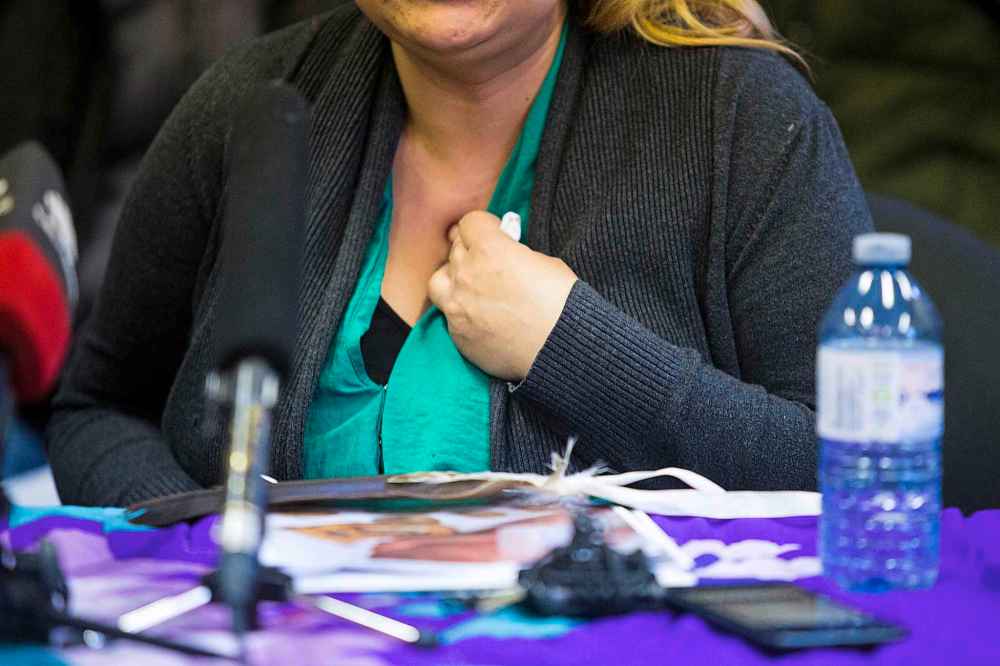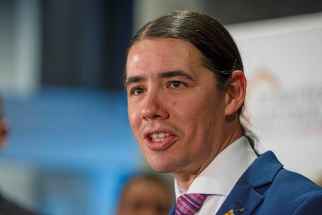CFS apprehended newborn ‘deemed in need of protection’: court files
Read this article for free:
or
Already have an account? Log in here »
To continue reading, please subscribe:
Monthly Digital Subscription
$0 for the first 4 weeks*
- Enjoy unlimited reading on winnipegfreepress.com
- Read the E-Edition, our digital replica newspaper
- Access News Break, our award-winning app
- Play interactive puzzles
*No charge for 4 weeks then price increases to the regular rate of $19.00 plus GST every four weeks. Offer available to new and qualified returning subscribers only. Cancel any time.
Monthly Digital Subscription
$4.75/week*
- Enjoy unlimited reading on winnipegfreepress.com
- Read the E-Edition, our digital replica newspaper
- Access News Break, our award-winning app
- Play interactive puzzles
*Billed as $19 plus GST every four weeks. Cancel any time.
To continue reading, please subscribe:
Add Free Press access to your Brandon Sun subscription for only an additional
$1 for the first 4 weeks*
*Your next subscription payment will increase by $1.00 and you will be charged $16.99 plus GST for four weeks. After four weeks, your payment will increase to $23.99 plus GST every four weeks.
Read unlimited articles for free today:
or
Already have an account? Log in here »
Hey there, time traveller!
This article was published 06/02/2019 (2498 days ago), so information in it may no longer be current.
Concerns about mental health issues and substance abuse led Child and Family Services staff to seize a newborn baby girl from her mother’s care in January — a traumatic event that was livestreamed from a St. Boniface hospital room, later reaching more than a million viewers on Facebook.
The family’s case was on the child protection court docket Wednesday, but was adjourned for a week.
In court documents, a Winnipeg-based CFS agency worker reported: “The child was deemed in need of protection and placed under apprehension” because her mother was experiencing mental health issues, including ADHD, anxiety and depression.

There were also safety concerns about the baby’s unnamed father, and details raised about the mother’s previous history with the child-welfare system.
The Free Press reached out to the mother’s lawyer, who said she was not able to comment on the allegations in the court file Wednesday.
No participant in child protection hearings, including the legal team, can be identified under Manitoba law.
According to the case file, the mother was the subject of two abuse investigations with regards to an older daughter. It’s unclear whether charges were laid in regards to those investigations.
The elder daughter was brought into CFS care in 2014, “due to concerns of substance abuse (crack cocaine and alcohol), neglect, the mother’s mental health and inappropriate parenting," an agency worker wrote.
During her latest pregnancy, the mother allegedly told an agency worker she was an alcoholic and undertook treatment twice, but didn’t finish either session.
On Dec. 28, 2018, the mother underwent a hair follicle drug test, which tested positive for oxycodone use within the past three months, according to the case file. On Jan. 7, she allegedly told an agency worker she also used cocaine during the last three months of her pregnancy.
When the mother was taken to deliver her baby Jan. 7, emergency medical services responders and hospital staff believed she was "under the influence" and "observed her to smell of alcohol," documents said.
During a news conference at the First Nations family advocate’s office Jan. 11, her family denied allegations the mother was intoxicated at the hospital. They countered that she was experiencing labour pains and needed medication.
The day after the baby’s birth, hospital staff reported the mother "appeared overwhelmed by the requirements of parenting" and was asking for "intense painkillers," such as morphine, rather than the Tylenol No. 1s she was prescribed.
Nurses were concerned the mother couldn’t "attend to" the baby’s hunger and intervened to feed her by bottle, the case file noted.
The family previously said they wanted an aunt to take care of the baby, if her mother wasn’t able.
In court documents, the CFS agency said it did consider a family member for parenting help and began completing background checks. “Those checks came back with concerning results which required further assessment and gathering of information from other sources,” the case file said.
As per the file, the mother said the baby’s father could be one of two men; one of whom was verbally abusive and she considered a “bad guy.”
In court Wednesday, a lawyer representing Island Lake CFS — the baby’s file was transferred from the Winnipeg agency last month — said a man recently came forward saying he is the father.
The man will be represented by a third lawyer at the next court proceeding.
var paidAccessCheck = function(){
if($(“.paywallteaser”).css(“display”) == “none”){
var data = {
“version”: “1.4.0”,
“id”: “6Gtcx2jKxxcSXzMqr”,
“heading”: “Infants apprehended by CFS”,
“qualifier”: “The number of children under 32 days old apprehended by Child and Family Services, per fiscal year”,
“source”: “SOURCE: Data provided to by the Manitoba Liberal Caucus under freedom-of-information requests granted by the provincial government in 2015 (for years 2006/07 – 2012-13) and 2018 (for years 2013/14 forward).”,
“tags”: [],
“chart”: {
“class”: “primary”,
“hasHours”: false,
“data”: “2006,295n2007-01-01,337n2008-01-01,380n2009-01-01,362n2010-01-01,354n2011-01-01,318n2012-01-01,365n2013-01-01,315n2014-01-01,328n2015-01-01,338n2016-01-01,354n2018-01-01,337”,
“options”: {
“annotations”: true,
“expanded”: false,
“footer”: true,
“head”: true,
“indexed”: false,
“interpolation”: “linear”,
“legend”: true,
“qualifier”: true,
“share_data”: true,
“social”: true,
“stacked”: false,
“tips”: true,
“type”: “line”,
“x_axis”: true,
“y_axis”: true
},
“x_axis”: {
“display”: true,
“scale”: “time”,
“ticks”: “auto”,
“orient”: “bottom”,
“format”: “comma”,
“nice”: false
},
“y_axis”: {
“display”: true,
“scale”: “linear”,
“ticks”: “auto”,
“orient”: “right”,
“format”: “comma”,
“nice”: true
},
“annotations”: {
“highlight”: [],
“range”: [],
“text”: [],
“pointer”: []
}
}
};
root.ChartTool = root.ChartTool || [];
root.ChartTool.push({id: “ct-” + data.id, data: data});
var b = document.getElementsByTagName(“body”)[0];
if (!b.classList.contains(“ct-charttool-init”)) {
b.classList.add(“ct-charttool-init”);
var c = document.createElement(“link”);
var j = document.createElement(“script”);
c.href = “https://wfpdata.s3.amazonaws.com/chart-tool/v4/chart-tool.css?token=0”; c.rel = “stylesheet”;
j.src = “https://wfpdata.s3.amazonaws.com/chart-tool/v4/chart-tool.js?token=0”; j.async = true; j.defer = true;
document.getElementsByTagName(“head”)[0].appendChild(c);
document.getElementsByTagName(“head”)[0].appendChild(j);
}
clearInterval(verifyPaidAccess);
}
}
var verifyPaidAccess = setInterval(paidAccessCheck,4000);
})(this);
The affected family’s story made international headlines in January after the Facebook video went viral, sparking public outcry about the overrepresentation of Indigenous families in Manitoba’s child-welfare system.
It also shone a spotlight on the practice of birth alerts, which notify CFS agencies when babies are born into what they believe could be deemed unsafe environments.
The family believed the baby was the subject of a birth alert in January, which court documents did not confirm.
Manitoba has more than 11,000 children in care and close to 90 per cent of them are Indigenous. Government statistics show roughly one newborn is apprehended in Manitoba each day.
jessica.botelho@freepress.mb.ca
Twitter: @_jessbu

















